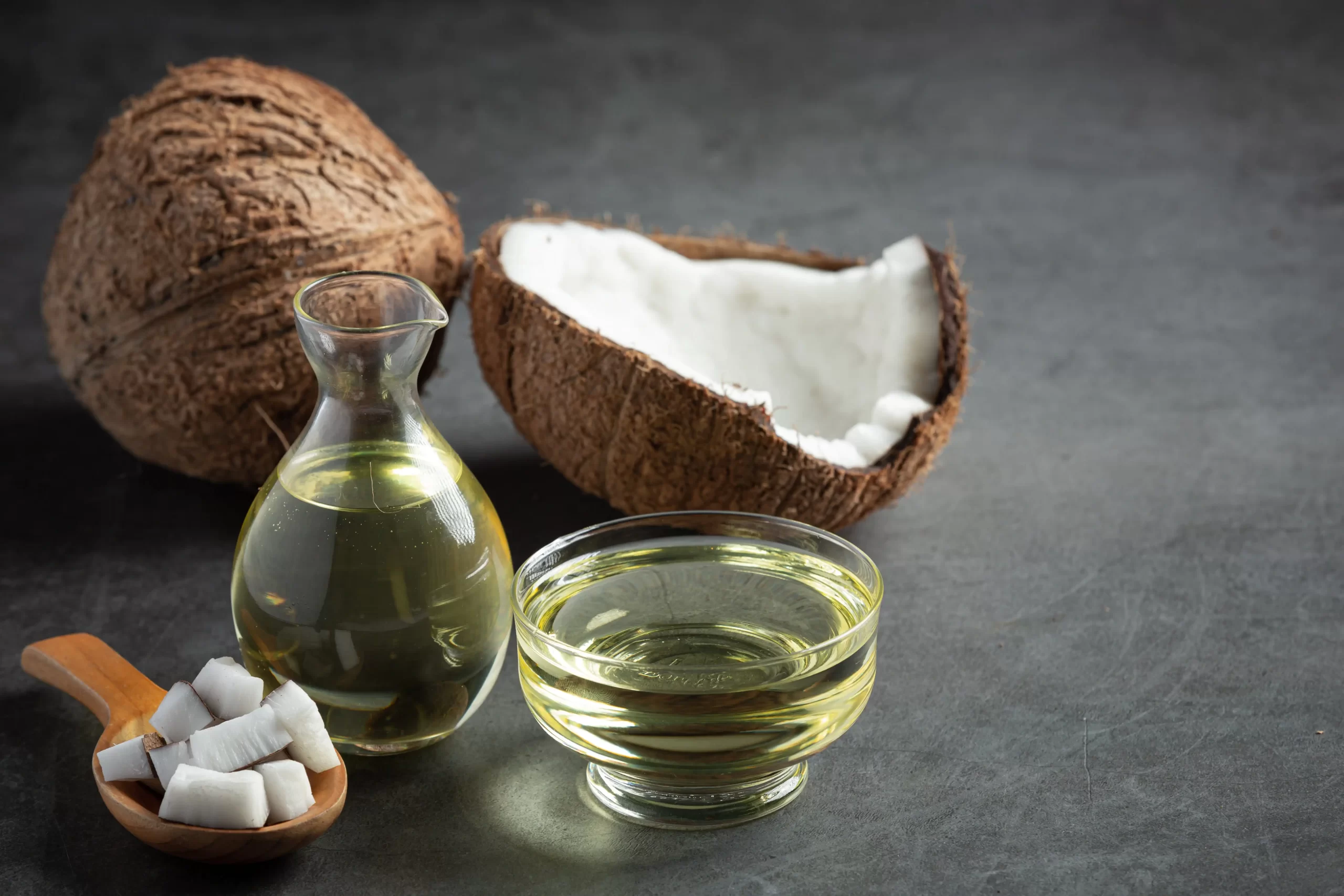Coconut Oil and Oral Health
Coconut oil is a natural product with numerous benefits and has gained great importance in recent years, holding a distinguished position in the field of dentistry. One of its most notable applications is its effectiveness in improving oral and dental health through a traditional practice known as oil pulling, which originates from Ayurvedic medicine. This method is believed not only to freshen breath and whiten teeth, but also to fight bacteria and reduce inflammation, thereby promoting overall oral health.
Benefits of Coconut Oil for Oral Health
- Improves Oral Hygiene
Coconut oil is widely used in a practice called oil pulling. This ancient Ayurvedic technique involves swishing a tablespoon of oil in the mouth for 10–20 minutes. It is believed to help remove bacteria, improve oral hygiene, and support healthy gums. The oil traps bacteria and plaque, reducing oral bacteria and leaving the breath fresher. - Antimicrobial and Anti-inflammatory Properties
Coconut oil contains lauric acid, known for its antimicrobial and anti-inflammatory effects. Studies show that lauric acid can help decrease harmful bacteria in the mouth, including those associated with plaque buildup, gum disease, and bad breath. - Cavity Prevention
Some research suggests that coconut oil might reduce the growth of Streptococcus mutans, the bacteria responsible for tooth decay. By lowering the presence of this bacteria, coconut oil could help prevent cavities, though more evidence is needed to confirm its full effectiveness. - Reduces Gum Inflammation
Thanks to its anti-inflammatory properties, coconut oil may help soothe gum inflammation and prevent conditions such as gingivitis. Regular use of coconut oil as part of an oral care routine can support healthier gums. - Helps Maintain a Brighter Smile
While research is limited regarding its teeth-whitening effects, coconut oil may help reduce surface stains caused by plaque and food particles, resulting in a cleaner and brighter appearance. - Moisturizes the Mouth
Coconut oil can be beneficial for people with dry mouth (xerostomia) as it helps keep the mouth moisturized, reduces discomfort, and refreshes breath. - Natural Alternative to Chemical Mouthwash
Coconut oil offers a gentle, natural option for those who prefer to avoid alcohol-based or chemical-filled mouthwashes that might irritate sensitive oral tissues. It naturally refreshes the mouth without harsh side effects.
How to Use Coconut Oil for Oral Care
- Oil Pulling
Swish one tablespoon of coconut oil in your mouth for 10–20 minutes—the time needed for the oil to gather bacteria and impurities. Do not swallow it. Afterward, spit it out, rinse your mouth with warm water, and brush your teeth as usual. Use pure, organic coconut oil for best results. - Toothbrushing with Coconut Oil
Some people mix coconut oil with baking soda to create a natural alternative to toothpaste.
Cautions and Considerations
Although coconut oil offers potential oral health benefits, it should never replace regular brushing with fluoride toothpaste, flossing, or dental visits. Coconut oil is generally safe for most people, but if you experience irritation or allergic reactions, discontinue use immediately.
Conclusion
Coconut oil provides multiple benefits for oral care, making it a natural and safe alternative for those looking to avoid chemical products. When used correctly and consistently, it can enhance oral health, freshen breath, and promote overall hygiene, making it well worth incorporating into your daily routine.

